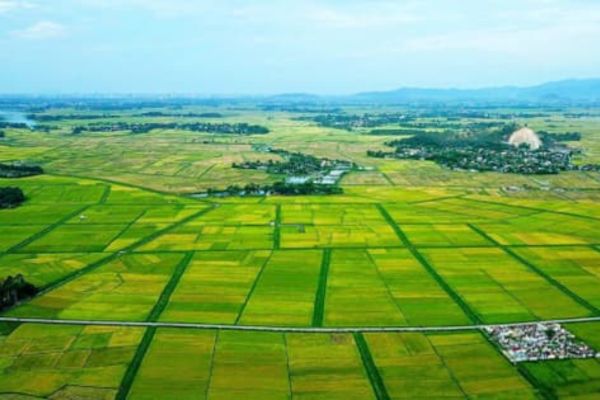According to Article 153 of the Land Law 2024, which of the following revenues is not considered State budget revenues from land in Vietnam?
According to Article 153 of the Land Law 2024, which of the following revenues is not considered State budget revenues from land in Vietnam?
According to clause 1 of Article 153 of the Land Law 2024:
Budget revenues from land
1. Budget revenues from land include:
a) Land use fees;
b) Land rental fees;
c) Revenues from administrative fines related to land;
d) Compensation money to the State for damage caused in the management and use of land;
dd) Additional land use fees, additional land rental fees for projects that do not put the land into use or are delayed in land use;
e) Land use tax;
g) Income tax from the transfer of land use rights;
h) Fees and charges related to the management and use of land;
i) Other revenues as prescribed by law.
...
According to Article 153 of the Land Law 2024, a revenue not falling under the following cases is not considered State budget revenue from land:
- Land use fees;
- Land rental fees;
- Revenues from administrative fines related to land;
- Compensation money to the State for damage caused in the management and use of land;
- Additional land use fees, additional land rental fees for projects that do not put the land into use or are delayed in land use;
- Land use tax;
- Income tax from the transfer of land use rights;
- Fees and charges related to the management and use of land;
- Other revenues as prescribed by law.

According to Article 153 of the Land Law 2024, which of the following revenues is not considered State budget revenues from land in Vietnam? (Internet image)
What are the methods of land valuation in Vietnam?
According to clause 5 of Article 158 of the Land Law 2024, the methods of land valuation in Vietnam include:
(1) The comparative method is carried out by adjusting the prices of land parcels with the same land use purpose and certain similarity in factors affecting land prices that have been transferred on the market or have won land use rights auctions where the auction winner has fulfilled financial obligations according to the auction decision, through analysis and comparison of factors affecting land prices after eliminating the value of assets attached to the land (if any) to determine the price of the land parcel to be valued;
(2) The income method is carried out by dividing the average annual net income per unit area of land by the average savings interest rate of Vietnamese Dong 12-month term deposits at commercial banks where the State holds more than 50% of the charter capital or the total number of voting shares in the province for 3 consecutive years to the end of the nearest quarter with data before the time of land valuation;
(3) The residual method is carried out by subtracting the total estimated development costs from the total estimated development revenue of a land parcel or land zone According to the highest efficient land use (land use coefficient, construction density, maximum building floor height) according to the land use planning, detailed construction planning approved by a competent authority;
(4) The coefficient adjustment method is carried out by multiplying the land price in the land pricing table by the land price adjustment coefficient. The land price adjustment coefficient is determined by comparing the land price in the land pricing table with the market land price;
(5) The Government of Vietnam stipulates other land valuation methods not stipulated in (1) to (4) after being approved by the Standing Committee of the National Assembly.
What are cases not providing land-related information and data in Vietnam from August 1, 2024?
According to Article 61 of the Decree 101/2024/ND-CP, cases where land-related information and data are not provided in Vietnam are stipulated as follows:
(1) Land-related information and data classified as state secrets according to the law. When such information is declassified, citizens are allowed access according to the law on access to information and the provisions of this Decree.
(2) Land-related information and data that endanger the interests of the State, adversely affect national defense, national security, international relations, public order, and social safety as prescribed by law.
(3) Information about land users, owners of assets attached to land without the consent of the land users or owners of assets attached to the land, except for cases serving investigation activities, civil judgment enforcement, verification for handling violations of the law, and serving the state management work by competent authorities.
(4) Invalid documents or request forms for providing land-related information and data as prescribed.
(5) Organizations and individuals requesting land-related information and data but fail to pay the exploitation fees, usage fees of land data, or the price of increased value products or services using information from the national land database, the National Land Information System as prescribed.
LawNet